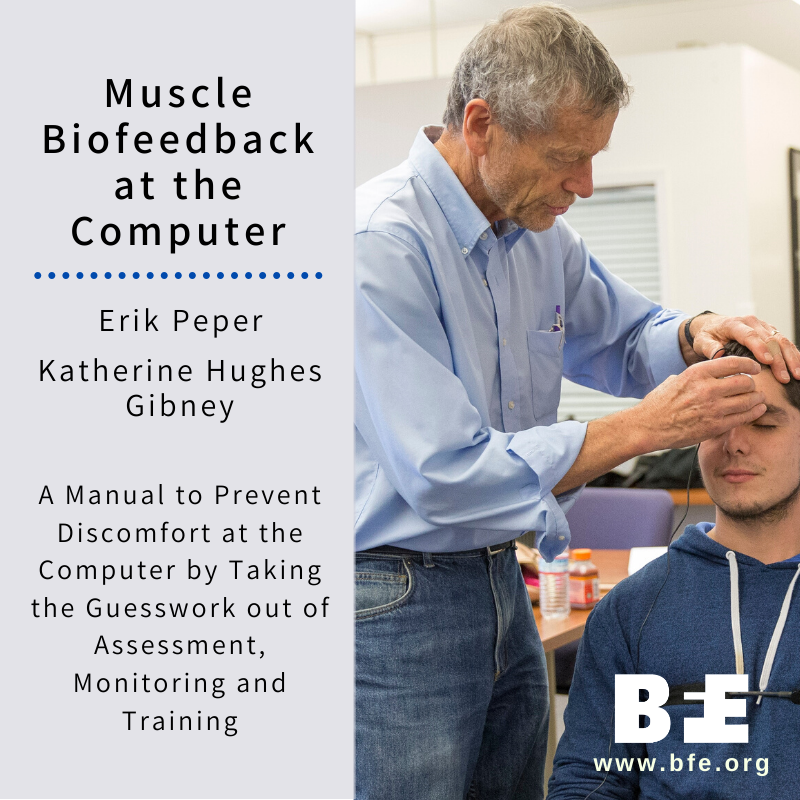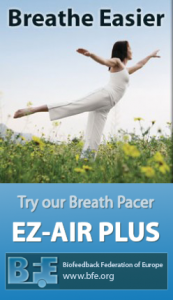Helping Clients who are Working From Home
Individuals working from home due to COVID-19 are having to adapt to many new challenges: sharing workspace with family members, mastering the use of video conferencing technologies and keeping children quiet during important online meetings. Setting up an ergonomically sound work area is often not possible when the typical “office” might just be a place at the kitchen table, a small desk in a spare bedroom or even a spot on the couch. However, paying mind to how you work can provide many health benefits.
According to Dr. Erik Peper, Professor of Holistic Health Studies at San Francisco State University and President of the Biofeedback Federation of Europe, “Incorrect ergonomic arrangement and stressed work style often increases neck, shoulder discomfort and aggravates eye strain and tiredness.” His book, “Muscle Biofeedback at the Computer” co-authored with Katherine Hughes Gibney, provides a wealth of information for health practitioners to assess and train their clients in various biofeedback techniques for optimal health while working at the computer.
Free Download
For a limited time, the digital version of “Muscle Biofeedback at the Computer” has been made available as a free download from the Biofeedback Federation of Europe. It is ideal for clinicians already using biofeedback as well as those interested in learning how access to physiological data can aid in better outcomes for their clients.
Click here to download the book
Dr. Peper offers many tips on things that individuals can do to minimize the challenges of working from home in a recent blog post on “the peper perspective.” Among them are scheduling mini breaks throughout the day, minimizing eye fatigue, practicing diaphragmatic breathing and optimizing arrangement of the home office setup. Read the full post “Reduce TechStress at Home” here.
He explores these topics in depth in his forthcoming book “Tech Stress: How Technology Is Hijacking Our Lives, Strategies for Coping, and Pragmatic Ergonomics” (Peper, E., Harvey, R., & Faass) Berkeley: North Atlantic Books.
Other recent posts on COVID-19:
Reduce initial dose of the virus and optimize your immune system
Can changing your breathing pattern reduce coronavirus exposure?
While you’re there, be sure to subscribe and receive notifications of new posts by email.



